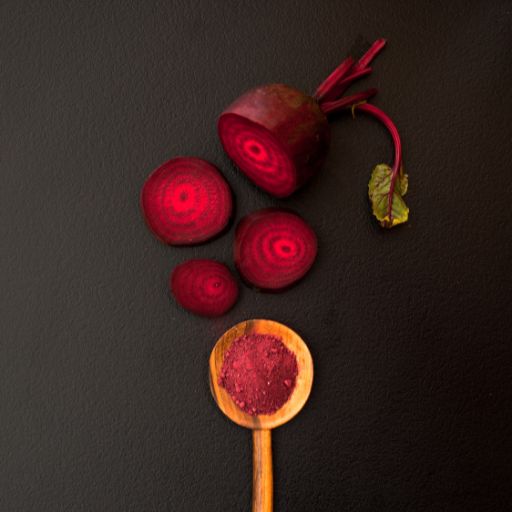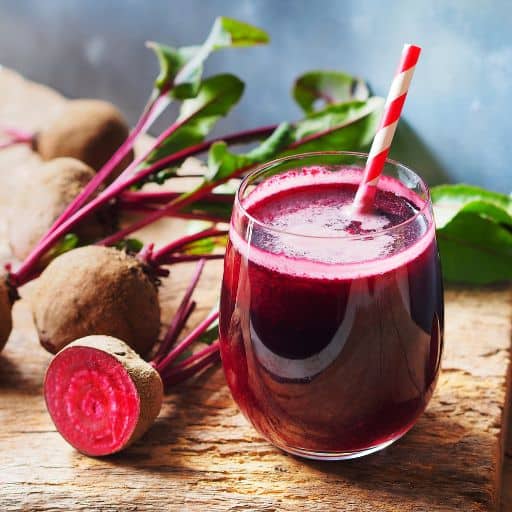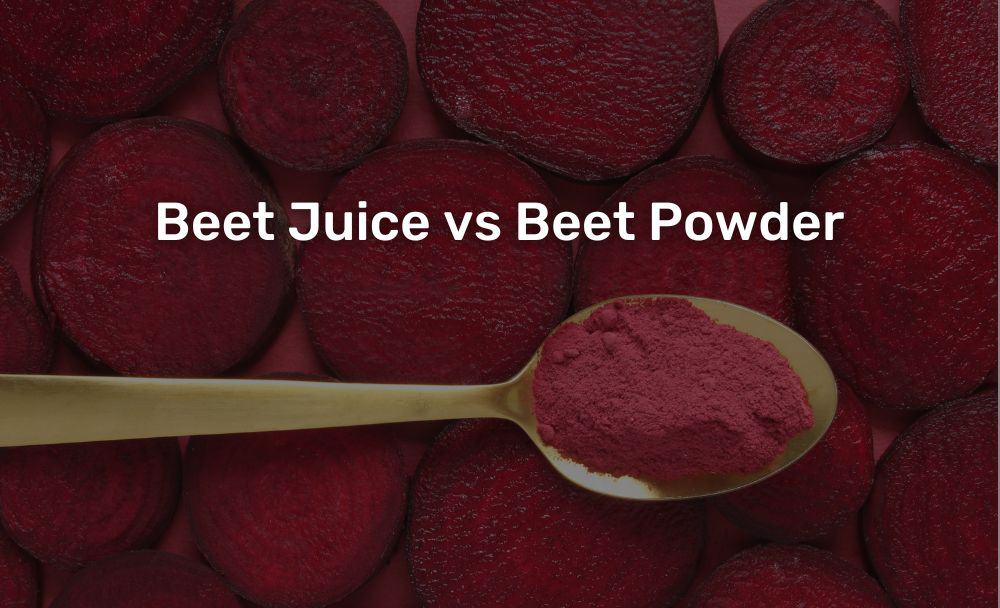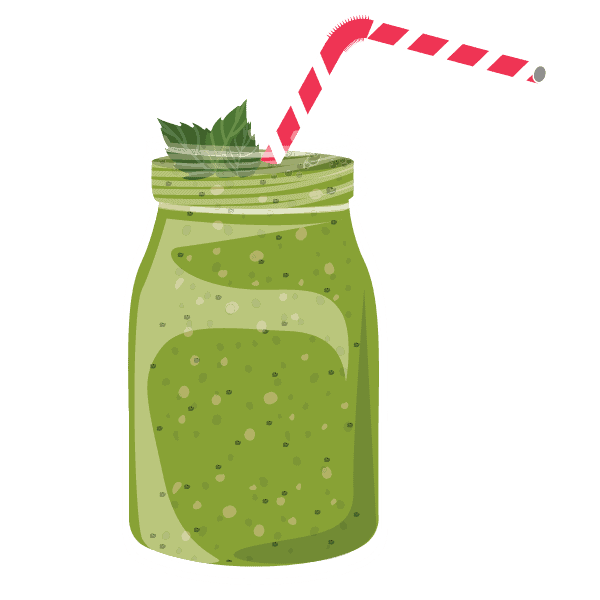As health enthusiasts, we can’t get enough of the fantastic benefits of beetroot, which is packed with vitamins, minerals, and bioactive compounds like phenolic compounds, carotenoids, flavonoids, and betalains.
But when it comes to beet juice vs beet powder, which offers the most health benefits?
At a Glance: Beet Juice vs Beet Powder – Which is Better?
Beetroot supplements and fresh beet juice offer health benefits but may vary in nutrient content and bioavailability.
Beetroot supplements typically have lower sugar content, making them more suitable for those watching their sugar intake.
However, fresh beet juice might contain more bioactive compounds and a broader range of nutrients. Choosing the option that best suits your needs and preferences is essential.
Pros and Cons of Homemade Beet Juice
Unfortunately, store-bought beetroot juice might not have all the nutrients you expect. You can make fresh beetroot juice at home if you’re a beet juice lover. This way, you can retain many essential vitamins and minerals, although you’ll lose some nutrients like fiber.
However, it’s essential to know that homemade beetroot juice has a higher sugar content than whole beet root. On the bright side, most of the beneficial bioactive compounds remain intact during the juicing process.
Fresh beetroot juice contains five times as much nitric oxide as the equivalent amount of beetroot powder or whole beetroot. Nitric oxide has been linked to various health benefits, including improved sports performance, cardiovascular function, and blood pressure reduction.
As always, consult with your healthcare provider before making significant dietary changes or adding supplements to your diet.
Pros and Cons of Beet Powder

You have two options for beetroot supplements: dehydrated beet juice powder or whole beet powder made from freeze-dried beets. The method used to create the supplement will affect its nutritional profile and bioactive compound content.
Beetroot supplements can be easily mixed into smoothies, water, or other beverages. They often contain additional ingredients like green tea, collagen peptides, dietary fiber, or other fruits and vegetables.
One popular beetroot supplement, SuperBeets, is primarily made from beets with natural fruit flavorings. It’s marketed as having as much nitric oxide as three whole beets, though the amount of nitric oxide is lower than in beetroot juice.
In the great debate of beet juice vs beet powder, the Journal of Food Science and Biotechnology study found that some nutrients are well-retained in beet supplements. For instance, beet root powder has more organic acids like citric acid and ascorbic acid than beetroot juice.
However, some nutrients are lost during powder production. Powdered beetroot supplements contain about half as much sugar as juicing beets, making them a better option for those watching their sugar intake.
While most beetroot supplement manufacturers don’t claim to provide all the nutrients in raw beets or juice, they often list benefits similar to those of SuperBeets powder or soft chews. The nitric oxide levels in beetroot powder and whole beetroots are often equivalent, supporting some manufacturers’ claims.
Benefits of Beetroot Juice for Cardiovascular Health

Beetroot juice is rich in dietary nitrates, which the body converts into nitric oxide. Nitric oxide is a potent vasodilator that relaxes and widens blood vessels, lowering blood pressure levels. Several studies have demonstrated the positive effects of beetroot juice on blood pressure and heart health:
A 2015 study published in the journal Hypertension found that consuming a single glass of beetroot juice daily significantly reduced systolic and diastolic blood pressure in hypertensive patients.
Another study in Nutrition Journal revealed that drinking 500 ml of beetroot juice significantly reduced blood pressure levels within just 6 hours of consumption.
The American Heart Association published a study showing that daily beetroot juice intake reduced systolic and diastolic blood pressure and improved endothelial function in older adults with hypertension.
How to Choose a High-Quality Beetroot Supplement
When choosing a high-quality beetroot supplement or beet powder, look for products with minimal added ingredients, no artificial additives, and non-GMO sources.
Opt for reputable brands with transparent labeling, including information about the manufacturing process, serving size, and nutritional content. Some suggested products are:
Frequently Asked Questions About Beetroot Juice
Here are the most popular questions and their answers about beetroot juice and beetroot powder.
What are the health benefits of drinking fresh beetroot juice?
Drinking fresh beetroot juice can improve cardiovascular function, lower blood pressure, enhance athletic performance, increase liver function, and increase nutrient absorption. The juice is also rich in antioxidants, which help to fight inflammation and oxidative stress.
How often should I drink beetroot juice?
Most research suggests that drinking 1 to 2 cups (8 to 16 ounces) of beetroot juice daily offers health benefits. Consult a dietitian or medical practitioner for personalized advice.
Can I drink beetroot juice on an empty stomach?
Drinking beetroot juice on an empty stomach can help with nutrient absorption. However, some individuals may experience gastrointestinal discomfort or an upset stomach. In such cases, consuming juice with a small snack or meal is best.
How much beetroot juice should I drink per day?
A typical serving size is 1 to 2 cups (8 to 16 ounces) of beetroot juice daily. However, starting with smaller amounts and gradually increasing your intake is essential to assess your body’s tolerance.
What are the side effects of drinking beetroot juice?
Some people may experience side effects from drinking beetroot juice, such as gastrointestinal discomfort, bloating, or diarrhea. Additionally, beeturia (pink or red urine) and pinkish stools are common but harmless side effects due to the betalain pigments in beets.
Can I drink beetroot juice if I have diabetes?
Beetroot juice contains natural sugars, so monitoring your blood sugar levels and adjusting your intake is essential. Consult with your healthcare provider or a dietitian for personalized advice.
Does beetroot juice interact with medications?
Beetroot juice can interact with certain medications, particularly blood thinners, blood pressure medications, or drugs for diabetes. If you take any medications, consult your healthcare provider before incorporating beetroot juice into your diet.
In summary, if you’re consuming beetroot powder supplements for dietary nitrate supplementation and vitamin C content, they’re a healthy and convenient alternative to drinking beet juice.
However, when it comes to beet juice vs beet powder, for me, fresh beets take the crown. It offers a broader range of nutrients and higher amounts of phenolic compounds and nitric oxide.




